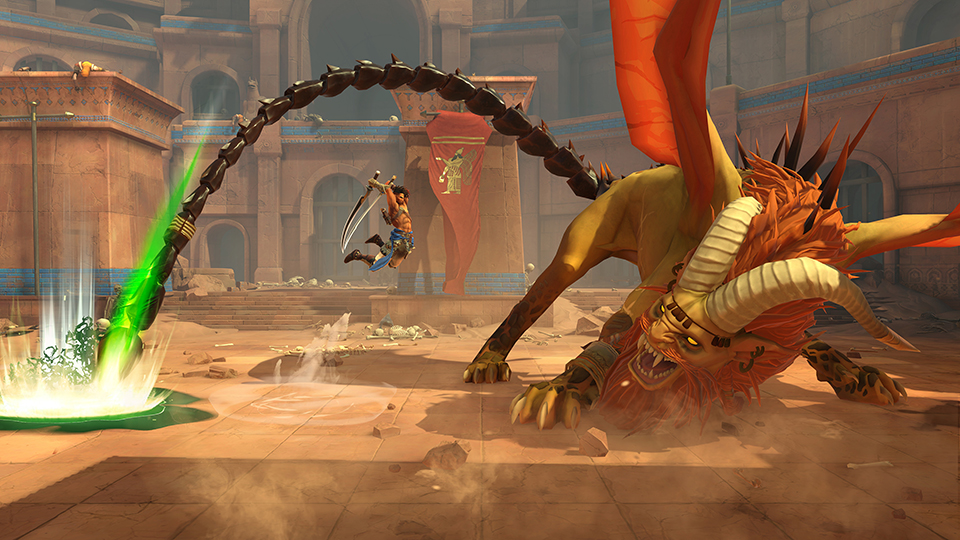The latest installment in the Prince of Persia series titled The Lost Crown is scheduled for release on January 15, 2024. However, players who purchased the Deluxe Edition are privy to 3 days of early access. Therefore, it is not surprising that walkthrough videos and reviews of the game have already filled the Internet. Although the game enjoyed glowing reviews, Ubisoft was called out for using AI voice for one of the characters.

The character in focus here was an NPC called Kalux (a tree spirit) who played no major role in the game. According to IGN’s Rebekah Valentine, it appears Ubisoft had used the AI voice as a placeholder for the character but forgot to replace it with a recorded human voice.
However, most gamers will barely notice, except those who are highly perceptive or “deliberately looking for trouble”—which I suspect was the case in the IGN review. The only time it would become clear that something was off was when the credits start rolling up and you discover that Kalux’s English voice was not named in the credits.
ALSO READ: Discord Will Lay Off 170 Employees According to Internal Memo

The only worrying observation was that some human actors voiced more than one character in the game, meaning it would have been easy to cast one of the actors to voice Kalux who had just a few lines (precisely 8 lines) of script. IGN reached out to Side UK which handled the game’s voicework and they said:
“SIDE London provides casting, production management, voice direction, voice recording, and post-production in Prince of Persia: The Lost Crown, for which we work with a talented cast of professional actors. As a production company, we did not have visibility of any other voice design plans, TTS or otherwise, Ubisoft had for the game.”
Ubisoft confirmed the use of text-to-speech for Prince Of Persia: The Lost Crown

Since SIDE UK did not make use of the text-to-speech software, all fingers quickly turned to Ubisoft. When Ubisoft was contacted for comments, they confirmed that the text-to-speech was only a placeholder that was supposed to be replaced. However, for some odd reasons that did not happen. Ubisoft said the TTS voice will be patched out.
“During the development process of a game, some teams use multiple placeholder assets, including text-to-speech voiceover, until final dubbing is delivered. The English version of these 8 lines of text for this character was not properly implemented but will be swapped out and updated with an upcoming patch. Prince of Persia: The Lost Crown is fully voice-overed in English, French, Spanish, German, and Farsi with more than 12,000 lines in total. It is also subtitled in Italian, Portuguese-Brazilian, Chinese, Korean, Russian, Arabic, Polish and Japanese.”
Reviewers got a guide that mentioned Prince of Persia: The Lost Crown will receive a day one patch. However, the patch is not expected to fix Kalux’s voice. Ubisoft is yet to give a definite timeline on when Kalux’s voice will be swapped with a human recorded voice.

ALSO READ: Why Is My Gaming Laptop So Slow? 5 Ways To Fix It!
Gatekeepers of AI use in video games are particularly concerned about AI tools taking over the jobs of humans. However, that doesn’t seem like the case here. From all indications, it appears Ubisoft genuinely omitted casting a human character for Kalux’s voice. There is also a possibility that Ubisoft tested TTS to see if anyone will catch it and maybe implement more TTS voices in future games if it goes unnoticed.
Nevertheless, my stance on the use of AI in video games has always remained the same: it is inevitable. The moral barriers are simply not strong enough to stop the use of AI in video games. While I also want real humans to be hired and paid, studios will continue to explore ways to cut down production costs. It is only a matter of time before the fuss quietens.



